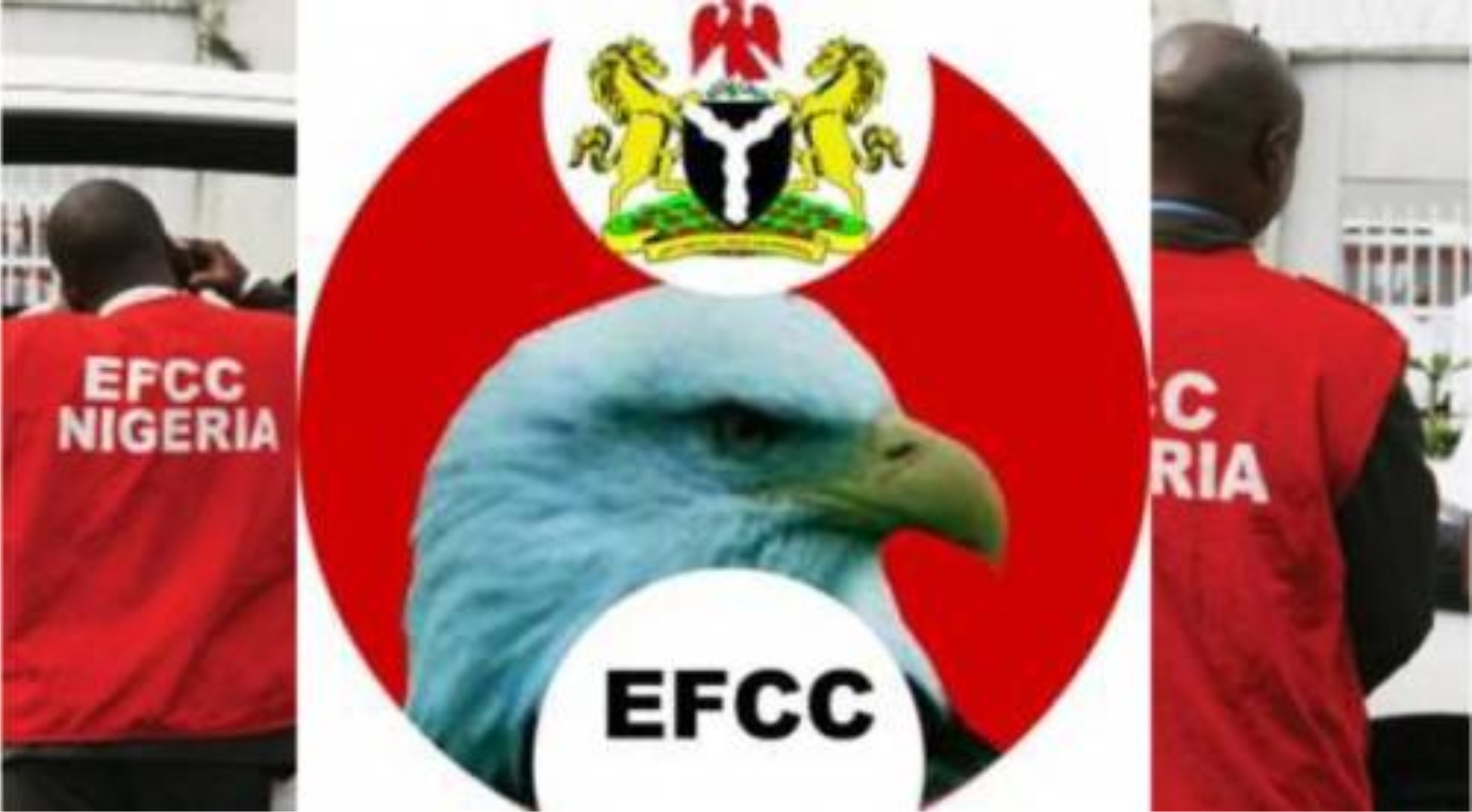News
SERAP Drags Akpabio, Misau To ICPC, EFCC Over Alleged Fraud

The Socio-Economic Rights and Accountability Project (SERAP) has petitioned the Chairman, Independent Corrupt Practices and Other Related Offences Commission (ICPC), Prof Bolaji Owasanoye; and the Acting Chairman, Economic and Financial Crimes Commission (EFCC), Ibrahim Mustafa Magu; urging them to “jointly and urgently invite senators Godswill Akpabio and Isa Misau for interrogation and further questioning over alleged diversion of constituency projects.”
The organization said: “If the ICPC and EFCC consider the recovered hospital equipment and six tractors allegedly diverted for the personal use of the senators as relevant and sufficient admissible evidence, we urge you to promptly begin prosecution of the former senators.”
The ICPC had last week stated that it recovered from the premises and farmland allegedly belonging to the senators’ equipment meant for constituency projects in some local government areas of Akwa Ibom and Bauchi states.
In a petition dated August 2, 2019, and signed by SERAP Deputy Director, Kolawole Oluwadare, the organization said: “Inviting those suspected to be involved for interrogation and further questioning, and for them to promptly face prosecution as appropriate, would show that no one is above the law. It would be entirely consistent with the exercise of your mandates to combat corruption, and with both the spirit and the letter of the UN Convention against Corruption to which Nigeria is a state party.”
SERAP expressed: “concern that these cases illustrate the growing allegations of massive corruption in constituency projects and the importance of not only monitoring the projects but thoroughly and effectively investigating reported cases of corruption and promptly bringing suspected perpetrators to justice.”
According to the organization, “When members of the National Assembly divert constituency projects for personal use, the essence of such projects is defeated, and the integrity of the mechanism compromised.”
The petition, copied to the Chairman, Presidential Advisory Committee Against Corruption, Prof Itse Sagay, read in part: “Corruption in the provision of public services such as healthcare affects and distorts the delivery of services and the right to the highest attainable standard of health. As the recoveries by the ICPC have shown, cases of corruption in constituency projects cause under-provision, divert public resources, or simply limit access to public services or make them unavailable.
“SERAP notes Section 15(5) of the Constitution of Nigeria 1999 (as amended) to the effect that ‘The State shall abolish all corrupt practices and abuse of power.’
“Similarly, the UN Convention against Corruption to which Nigeria is a state party requires the authorities to ensure effective, proportionate and dissuasive sanctions and penalties for corruption.
“The allegations of diversion of constituency projects by public officers have weakened public confidence in the effectiveness of the mechanism as currently implemented to deliver essential public services to those most in need. Unresolved allegations of corruption in constituency projects would significantly contribute to impunity for grand corruption in Nigeria and pose a serious threat to probity in public life, the rule of law and respect for human rights.
“Allegations of corruption in constituency projects meant to be implemented for the common good and not the personal gains of lawmakers, would ultimately undermine the principles of representative and accountable government that acts in the public interest, and equality and fairness.
“Corruption in the health sector or provision of support to farmers unfairly punishes the poor, and depresses living standards and opportunities for the most vulnerable and disadvantaged population.
“Inviting those suspected to be involved for interrogation and further questioning, and prosecuting them if the recoveries by the ICPC indicate relevant and sufficient admissible evidence would show your agencies’ willingness to exert your authorities and act as a deterrent against breaches of Nigeria’s anti-corruption legislation and international standards.
“SERAP urges both the ICPC and EFCC to jointly act to continue to ensure greater level of transparency and accountability in the implementation of constituency projects and to name and shame those suspected to be involved, if Nigeria is not to continue to witness damaging allegations of diversion and other forms of corruption in the implementation of constituency projects.
“The ICPC reported that it recovered hospital equipment meant for constituency project on the premises of Mma Obot Foundation, which is allegedly owned by former governor of Akwa Ibom, Godswill Akpabio. Among the recoveries are dialysis machine, ECG monitor, oxygen regulator, anaesthetic machines, generators and other hospital equipment meant for a cottage hospital in Ukana, Essien Udim Local Government Area of Akwa Ibom State.
News
HoS Hails Fubara Over Provision of Accommodation for Permanent Secretaries

News
Allegation of Disrespect to President Tinubu Unfounded — Rivers Government

News
Rivers Government Dismisses Allegations of Disrespect to President Tinubu

-

 Politics2 days ago
Politics2 days agoPFN Rejects Call For INEC Chairman’s Removal Over Genocide Comments
-

 Rivers2 days ago
Rivers2 days agoFasthire, PHCCIMA, CIPM Host CareerFest 2026 In PH
-

 Sports2 days ago
Sports2 days agoEnekwechi wins Orlen Cup in season opener
-

 Sports2 days ago
Sports2 days agoFalconets, Senegalese Lionesses arrive Ibadan for qualifier
-

 Sports2 days ago
Sports2 days agoSimba open Nwabali talks
-

 Politics2 days ago
Politics2 days agoHoodlums Disrupt LP-ADC Defection Event In Lagos
-

 Niger Delta2 days ago
Niger Delta2 days agoStakeholders Task INC Aspirants On Dev … As ELECO Promises Transparent, Credible Polls
-

 Education2 days ago
Education2 days agoBUK Taps Content Creators to Expand Its Digital Footprint

